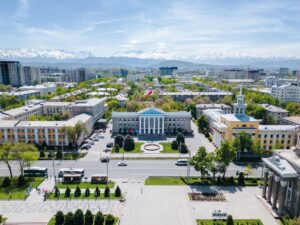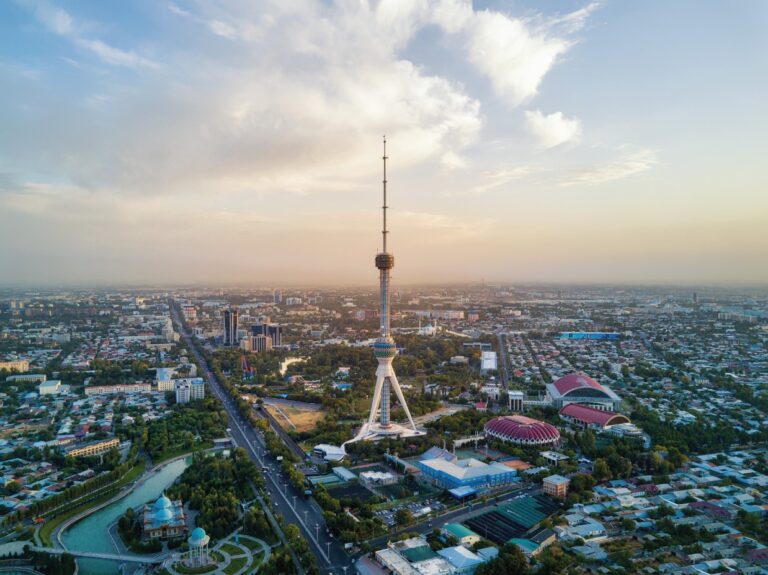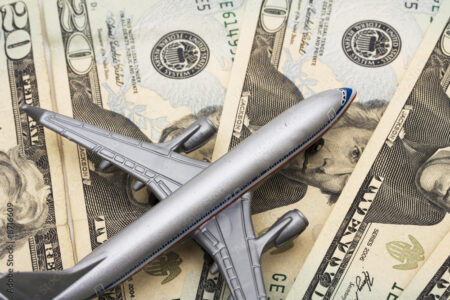Central Asia is a region comprised of five post-Soviet countries: Kazakhstan, Uzbekistan, Kyrgyzstan, Tajikistan and Turkmenistan.
Despite its advantageous geographical location, in the middle of the airways spanning Europe and Asia, this corner of the world is on the cusp of unlocking its potential as an international air hub, a vision that local authorities first declared plans to achieve almost three decades ago.
Several reasons have hindered the development, but the turbulent economic and political environment, scaring away foreign investors, are commonly seen as among the key constraints. Consequently, business has been tough for the local FBOs and ground handling services providers over the past several years.
“Without exaggeration, it can be said that tariffs for ground-handling services at Kazakh airports are among the lowest in the region, while it is worth noting that the costs of maintaining airport infrastructure are substantial,” comments Abul Kekilbayev, a freelance consultant cooperating with the Kazakh Civil Aviation Association.
18 Kazakh airports are categorized according to the International Civil Aviation Organization standards. However, the state of their infrastructure is a sorry sight.
“Most regional airports require significant investments in ground infrastructure, and the shortage of equipment is a separate headache for airfield owners. For example, there has been no major overhaul of the runway at the capital’s airport for more than 20 years. In several promising regional airports, the picture is similar,” Kekilbayev says.
Despite that, in 2024 Astana airport was ranked the best airport in Central Asia for the third consecutive year by Skytrax, reflecting that in other parts of the region, things look the same and usually even worse.
In spite of the challenges, the entire region has witnessed a significant upshift in traffic, a trend that was especially visible in Kazakhstan and Uzbekistan, signaling the exciting opportunities that lie ahead.
Since the end of the Covid-19 pandemic, the ground handling market of Uzbekistan, the second largest Central Asian economy, has experienced outstanding growth, says Bahtiyar Nomozbaev, the CEO of Delta Global
Solutions, a logistics and ground handling company headquartered in Tashkent, Uzbekistan, with offices in Singapore and London.
“The after-pandemic period has been showing a stable growth in the ground handling service sector as the number of flights to and from Uzbekistan grows, contributing to increased demand for efficient cargo processing and handling services at airports,” Nomozbaev notes.
Grasping opportunities

The growth of the past few years can be attributed, at least to some extent, to the fallout of the Ukrainian conflict.
In early 2022, the Russian aviation sector was among the first to be hit with sweeping sanctions by the European Union and G7 countries. Russia’s reciprocal measures closed Russian airspace to most Western airlines, interrupting some key international air corridors.
Russian airspace closure has severely impacted aviation, with some flights between Europe and Asia being lengthened by hours due to airspace avoidance.
For Central Asia, however, this was a time of big opportunities. Speaking about the key outcome of the geopolitical situation in the aviation sector, Kekilbayev points out that in 2023, Kazakhstan’s state provider of aeronavigation services ANO, served 415,000 flights, including 308,000 foreign air companies.
“These figures are record-breaking for the entire period of Kazakhstan’s independence,” Kekilbayev states.
The surge in transit flights has taken Kazakh airports by storm. Kekilbayev said that the airports struggled to meet the growing demand and essentially failed in the first place due to a lack of jet fuel on the Kazakh internal market.
Kazakhstan is contemplating various steps to tackle the jet fuel shortage and grasp the existing transit opportunities. In October 2023, the Kazakh Energy Ministry announced it was mulling plans to start importing non-Russian fuel, particularly from China.
Kazakh refineries claim they are ready to meet domestic demand requirements in the jet fuel segment but can, in fact, cover only two-thirds of the actual requirement, Nurlan Zhumagulov, executive director of consultants the Energy Monitor Fund says. To a degree, this is likely to be associated with a surge in flights to and from Kazakhstan in the last two years.
However, Kazakhstan and Kyrgyzstan are members of the Eurasia Economic Union (EEU), a Russia-led trade bloc. Under the terms of the membership, the countries need to negotiate fuel imports from third countries with the Eurasia Economic Commission.
Historically, EEU members have been closing the gaps in fuel supplies through imports from Russia. Zhumagulov expressed confidence that Kazakhstan needs to diversify its range of fuel suppliers, particularly warning about possible import disruptions from Russia due to the continuing drone attacks on that country’s refineries.
The brunt of sanctions

The repercussions of the Ukrainian conflict, however, were not only positive for the Central Asian airports.
Anna Belyh, a spokeswoman for Ador Aero, a ground handling company based in the Manas airport in Kyrgyzstan, claims that the situation in Ukraine has significantly impacted operations in several ways.
First, Belyh pointed out that Western sanctions against the Russian banking systems have affected money transfers and foreign currency exchange operations.
Russia-related flights, including business jets, traditionally comprised a lion’s share of traffic in the three Kyrgyz airports. Since 2022 Visa and MasterCard credit cards issued by Russian banks have no longer been accepted outside the country. Until recently, Russian customers could use the Russia-designed Mir payment system to pay for airport services. However, this loophole was closed in April 2024 after the US imposed sanctions against the Russian system operator.
Since April, all Kazakh banks have disconnected from the Mir system, making payment issues reportedly more difficult for Russian customers.
However, the impact of the sanctions is more than that. Nomozbaev reveals that the Ukrainian conflict and restrictions against Russian businesses and individuals have led to changes in operational protocols to ensure compliance with international regulations and avoid any direct or indirect involvement in sanctioned activities.
“This includes stricter screening and monitoring of cargo and passenger flights. Heightened security concerns have led to the implementation of more stringent safety and security measures within Uzbekistan airports,” explains Nomozbaev.
Delta Global Solutions has also introduced a sanctions compliance policy that is binding on the company and its partners to ensure compliance with international regulations and mitigate associated risks, Nomozbaev says.
For Central Asian businesses, the risk of not complying with Western sanctions is significant. According to Delta Global Solutions, it includes not just broken relationships with customers and suppliers but other consequences such as being cut off from the global financial system, including the ability to transact in US dollars.
In addition, some airports and ground handling providers in Central Asia have experienced problems in importing equipment and spare parts due to Western sanctions against Russia.
Belyh lists supply disruptions among the key sanction-related challenges. In previous years, Central Asian businesses purchased necessary inputs from Russian wholesalers, but the tides reversed when the sanctions were imposed. Now, Russian firms are trying to source necessary products and technologies through third countries, including those in Central Asia, posing local industry with a difficult choice: Russian partners are willing to overpay, but an unexplained surge in deliveries can make Western suppliers suspicious.
Nomozbaev admits that compliance with sanctions has complicated the supply of equipment and components for Kazakh companies.
As market players indicated, Western suppliers also fear secondary sanctions and increasingly scrutinize the supply chain to ensure that the products they sell to Central Asia do not end up on Russian territory.
Despite the challenges, the traffic growth seen in the past few years is set to continue, especially in Kazakhstan and Uzbekistan, though the pass-through capacity of the key airports is already close to its maximum.
“After the pandemic, aviation in Kazakhstan shows a stable growth rate of around 20% per year. In particular, air transit is growing, and Kazakhstan is becoming attractive to transit flights. Undoubtedly, the current geopolitical situation has made its own adjustments, but the weak infrastructure of regional airports is operating at the peak of its capabilities and can no longer cope with the growing flow,” explains Kekilbayev.
In Tashkent, the biggest Uzbek airport, the peak is projected to be hit in 2027. After that, no further increase in traffic will be possible unless a comprehensive capacity expansion is done.
For years, Central Asian airports lacked money for modernization, and strained national budgets couldn’t compensate for the shortcomings of their own funding.
Today, Kekilbayev says Kazakh airports, except Astana and Almaty, are chronically unprofitable. The situation is slightly better at the airports of Shymkent, Aktau, Atyrau, and Aktobe, where passenger traffic exceeds a million per year.
However, most airports failed to secure investments in the airport infrastructure.

“The authorities are looking for solutions to these issues, including by transferring these airports to under management of private investors,” Kekilbayev says.
In January 2024, Kazakh Transport Minister Marat Karabaev revealed that the authorities are considering transferring all airports under the management of foreign companies. International experience is expected to be a game-changer for the ineffective and loss-making Kazakh airport industry.
In the area of ground handling services, some positive changes are already seen. Kekilbayev said the government embarked on a European model to develop competition at key airports. Under the regulation last amended in April 2024, the authorities stipulated that if technically possible, airport operators must allow ground service providers independence from the airport operator and airlines.
Although there are still bumps on the road towards a more competitive environment, market players are encouraged that the general direction of development is right.
Some positive shifts are also expected in Uzbekistan. Under the plan adopted in 2023, the authorities plan to transfer four airports – Andijan, Namangan, Bukhara and Urgench – to private management. Uzbek President Shavkat Mirziyoyev gave a green light for the project, citing the success of the Samarkand airport, which transfer to privately-owned Air Marakanda, which secured a 150% jump in traffic in a few years.
“The ground handling sector in Uzbekistan is currently undergoing active development and modernization. Significant investments in infrastructure and technology, combined with initiatives to enhance staff qualifications and improve services at the local airports, reflect our country’s commitment to elevating the quality of aircraft ground handling and flight support,” Nomozbaev says.
“There are plans to modernize Manas Airport, including an increase in the amount of specialized equipment and ground handling equipment, which will increase the airport’s capacity and improve the quality of passenger service,” Belyh says.
The Ukrainian crisis had a negative impact for most post-Soviet and European economies, but for Central Asia is has presented some unexpected opportunities.





